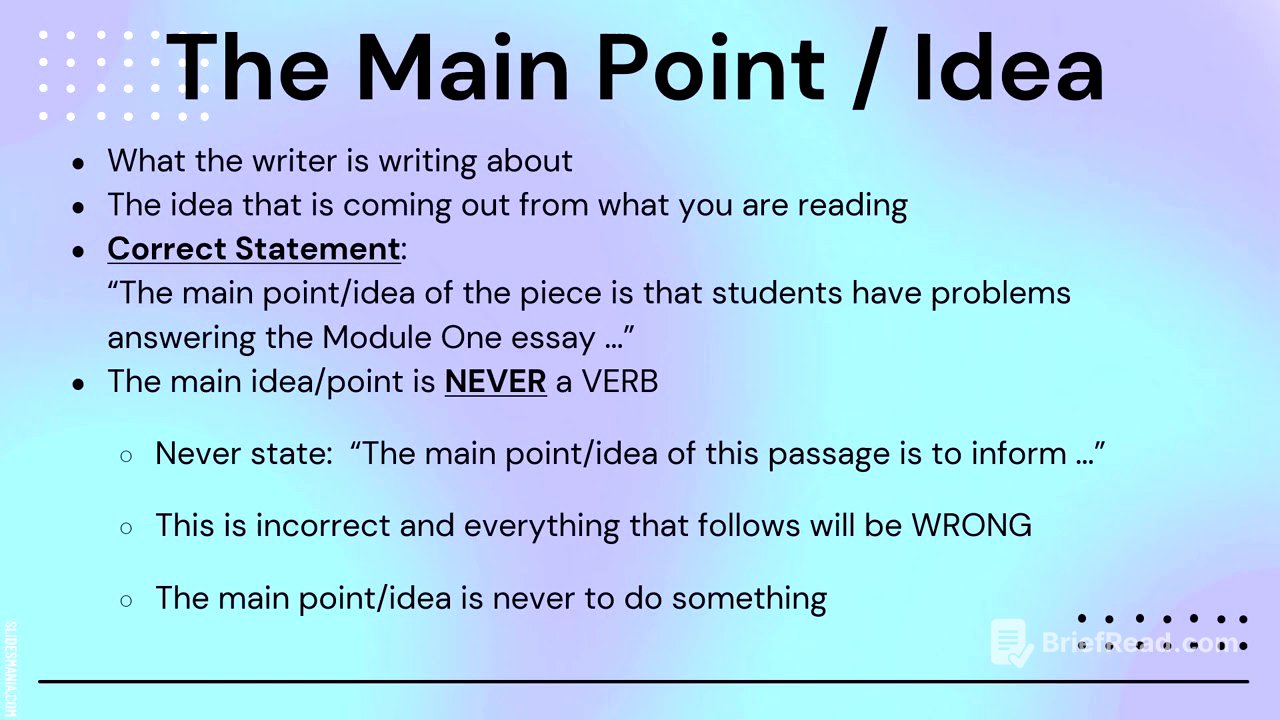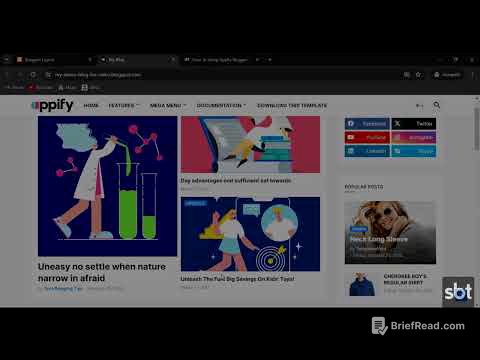TLDR;
This video provides tips for writing a perfect Caribbean Advanced Proficiency Examination (CAPE) Module One essay, drawing from the CXC report. It emphasizes the importance of understanding and differentiating between the main point and the writer's purpose, developing ideas fully, and avoiding common errors in stating these elements. The video also covers language strategies, essay analysis, organization, and offers encouragement to seek additional information in a related video.
- Understanding the difference between the main point and the writer's purpose is crucial.
- The main point should not be stated using a verb, while the writer's purpose should be.
- Recognizing organizational strategies and their relation to the main purpose is important.
Main Point vs. Writer's Purpose [0:14]
Understanding the difference between the main point and the writer's purpose is essential for writing a successful CAPE Module One essay. Students often confuse these two concepts, leading to errors in their essays. To satisfy one-third of the essay requirements, it's crucial to correctly identify and the main point and the writer's purpose.
Distinguishing the Main Idea [1:43]
The main point is the central idea the writer is conveying, which may require two or three sentences to fully capture, especially in longer passages. It includes the writer's perspective on the main point and how the writer suggests the audience should respond. To correctly state the main point, avoid using a verb. For example, instead of saying "the main point is to inform," state the issue directly, such as "students have a problem answering the module one essay."
Writer's Purpose and Organizational Strategies [3:49]
The writer's purpose is the intent behind the writing, aiming to shift the reader's perspective. It is always stated as a verb, indicating what the writer wants to achieve as a result of the reader engaging with the text. Examples include "to inform," "to entertain," "to criticize," "to argue," or "to convince." Recognizing that organizational strategies can be mixed within a piece of writing is also important. There will be one main organizational strategy related to the main purpose, with supplemental strategies supporting it. It's crucial to differentiate between the main purpose and any supporting strategies used.









